
Scholar athlete
Langara Falcons player Kadyn Brown is an inspiration to his team. P8



Food aid denied
New
get denied aid. P2
Nurse ratio ripple
The B.C. government comes out with a new nurse-to-patient ratios. langaravoice.ca




Langara Falcons player Kadyn Brown is an inspiration to his team. P8



New
get denied aid. P2
The B.C. government comes out with a new nurse-to-patient ratios. langaravoice.ca


Student petitioners turn into protesters after being barred from LSU office
Asmall group of Langara students protested the Langara Students’ Union annual election last week after their petition to cancel the vote was refused.
Langara student Dilpreet Mann, who was denied a nomination to run for president by the LSU’s elections committee, had gathered a 250-name petition calling for the LSU elections to be cancelled.
"There is no matter of win or lose. Win is also there, lose is also there. We just want fair elections. If we lose it doesn't matter,” he said.
He and a dozen other students tried to gain entry to the LSU offices in the Student Union Building to deliver the petition on the first day of voting Oct. 15, but were blocked in their attempts to enter by the LSU staff who closed the door on them.
“They just don’t listen to us. Just close the door right in front of our
faces,” said Langara student Harjap Singh Khair, who was one of the petitioners.
The LSU’s annual elections, held Oct. 15 to 17, selects students to serve a one-year term on the LSU board. The students perform several duties and are paid stipends. Recent elections have been the subject of complaints from students who say they were hindered in their attempts to run.
Following the LSU’s refusal to accept the petition, the students held a quiet protest in front of the LSU elections voting desk in the lower lounge for the remainder of the morning.
who said they cannot “interfere with the vote.”
A staff member from the LSU, who is known to the students as Donna Rainford-Cayenne took pictures of the protesters when they
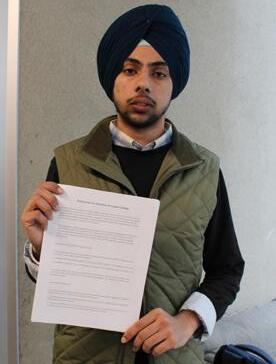
STUDENT
Noting that the ballots allowed a “no” option for the candidates, some protesters encouraged voting students to choose “no” on their ballots. They were stopped by LSU employee Winnie Kuitenbrouwer,
try to talk to staff at the election desk while she waited to vote. She said that the staff told the protester to “go away” and called him “stupid.” As a result, she said she opted not to vote.
Kazemi said she had attempted to contact the LSU multiple times in her two-year tenure as a club president.
“We just want fair elections. If we lose it doesn't matter.”
— DILPREET MANN, GENERAL STUDIES STUDENT
arrived at the LSU building.
“I am not speaking to you about anything,” said Rainford-Cayenne, after a request for a comment.
Lei Kazemi, the former president of the Langara Esports Association, said she saw one of the protesters
“There was only one time in 2022 when I knocked on that office, and someone actually came out and she said you need to send us an e-mail and then slammed the door in my face,” said Kazemi.
Diversity & Inclusion
Representative candidate Ikpreet Singh was seen soliciting for votes in the LSU building.
According to LSU’s election policy, campaigning cannot occur during the voting period. The protesters complained to the elections desk, but said they were denied
an answer.
“They just shouted at me that, ‘Why are you complaining about all these things to us?’” said protester Khushdeep Virk.
The day after the protest, the seats were removed from the front of the polling booth and the entire area was taped off. Outside security was hired by the LSU to watch that area.
A Voice editor attempted to take pictures of the area behind the tape on Oct. 16 but was stopped by the staff sitting at the LSU polling booth.
A security guard, unaffiliated with campus security, told the editor to hand over his phone and delete the pictures. He was told to follow the security down to the LSU lounge, which he refused to do. He then called his instructor.
After a brief conversation, the editor and instructor departed from the building.
The college and LSU have not commented on the protest or the petition by publication time.
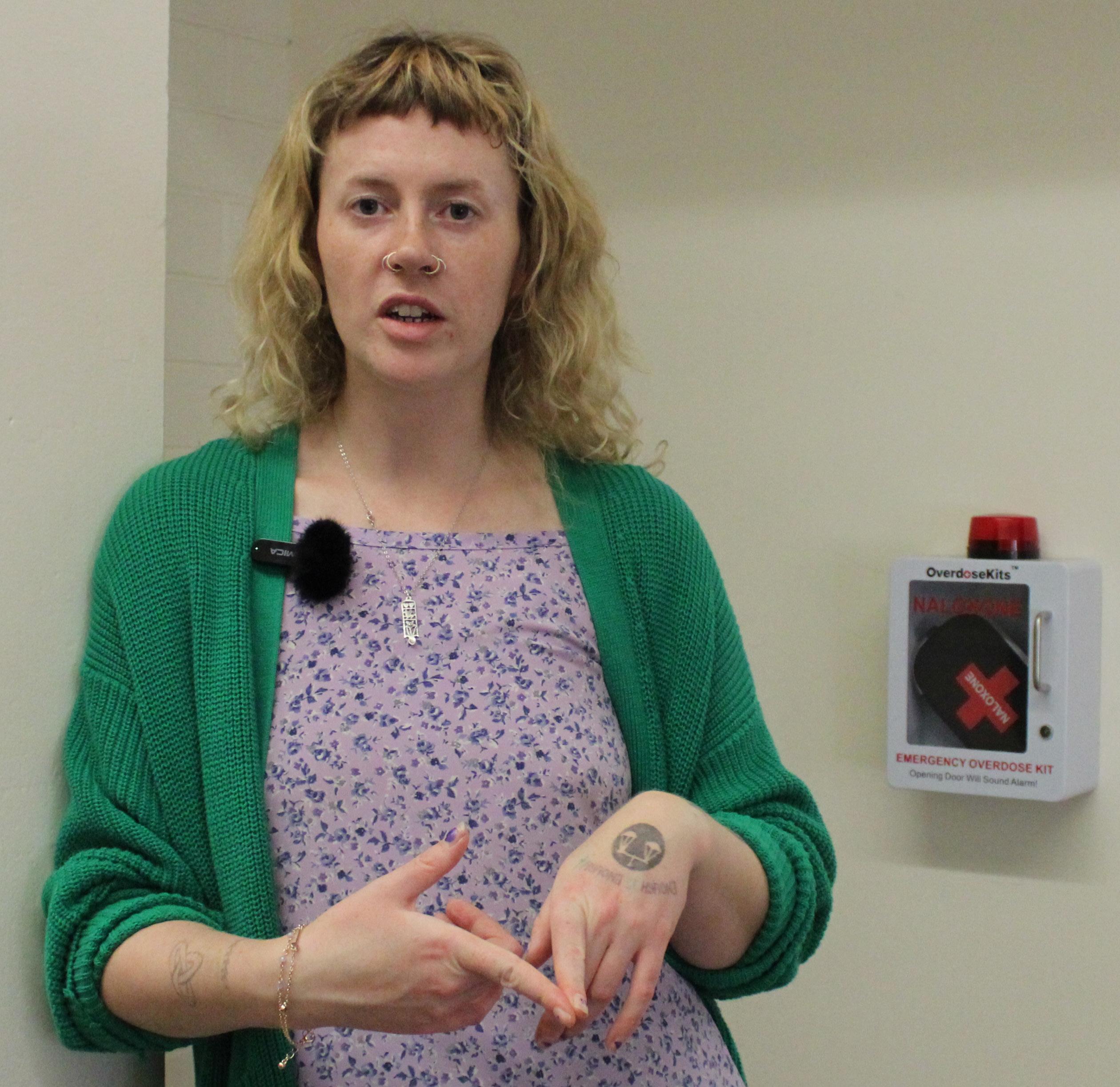
By SAGE SMITH
Gwyn Crisp says in a city like Vancouver struggling with a toxic drug crisis, anyone can come across a person having an overdose.
Crisp, a 26-year-old Langara student, said she witnessed two overdoses and learned the importance of the life-saving drug naloxone.
She recounted finding a man “completely passed out” and running to a nearby business where staff happened to have naloxone and training on how to use it.
“We probably saved that guy’s life,” she said.
The overdose death of a University of Victoria student in January led the B.C. government to release guidelines in August recommending post-secondary institutions to provide naloxone kits, awareness and training.
In response, Langara College installed nine naloxone cabinets throughout campus. As of yet, no awareness campaign, training events or signs have accompanied them.
While Langara’s health services offers small training sessions by appointment, the last naloxone train-
ing event advertised by the college was in January 2022.
Crisp hadn’t noticed the naloxone on campus and is disappointed that students haven’t been notified about their presence.
She said she worries that without training, students will struggle to identify and respond to overdoses.
Crisp said the training is relatively easy and quick, and recommends that everyone take it “because you could save someone.”
Langara psychology student Abby Candfield also said the danger of overdoses touches her life on a regular basis as she has a family member struggling with substance abuse.
“You never know who could be a substance user. It could be the person sitting next to you in class,” she said.
Candfield also hadn’t noticed the naloxone kits on campus and share similar concerns about the lack of training offer to the Langara community.
“It’s something that can be very well hidden and you really never know when an overdose can happen. It could happen to anyone, anywhere, anytime,” Candfield said.
Adam Brayford, director of stra-
tegic communications and marketing at Langara, said in an email to the Voice that the college plans to initiate an awareness campaign for employees and students, but he did not say when.
“This will include information to all new students and employees during orientations, ongoing messaging throughout the semester, and opportunities [to] learn how to use naloxone,” the email said.
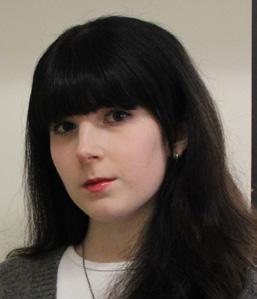
Candfield LANGARA PSYCHOLOGY STUDENT
Ruth Bruhn, a production manager at Studio 58, said that she is excited by the kits and is hoping to see training offered soon.
Bruhn said raising awareness about the kits is important as some students, especially those from abroad, may not know of the ongoing drug crisis in Vancouver.
“We are a school that invites people from around the world and we have to take that into account,” Bruhn said.
By KORALEE NICKARZ
AGreater Vancouver Food Bank policy prevents international students experiencing food insecurity during their first year in Canada from receiving free food while they adjust to an unfamiliar country and community.
Emma Nelson, communications manager at the GVFB, said in an email the policy exists because the federal government requires international students to have "substantial savings" before coming to Canada.
The Federal rules require international students to have $20,635 saved up, in order to qualify to study in Canada.
“After a year, these savings will likely have been used up, and food insecurity is a genuine possibility,” Nelson said.
Baljit Kamoh, the Vancouver regional director for the non-profit Khalsa Aid Canada, disagreed. She said international students need the most support when they first arrive in the country.
“A lot of them don’t know the high cost of living on top of their international tuition fees, which is typically three to four times that of a citizen student,” she said.
Khalsa Aid’s Metro Vancouver team provides anywhere from 200 to 300 food packs to international students per month in Surrey, B.C., and the demand for the packs goes up at the beginning of each term, according to Kamoh. She speculates that the increase is because students arriving to begin studies are unaware of services they can access.
than doubled from 2019 to 2023. Vancouver Coun. Adriane Carr called the GVFB’s policy “tragic” and added, “it’s really important that the students who come here to gain an education don’t starve as they do it.” She said she does not want to be critical of the role the GVFB plays in helping those in need, but that they should reconsider their international student policy.
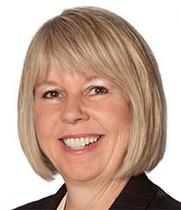
Adriane Carr VANCOUVER COUNCILLOR
Food Banks Canada’s Ethical Foodbanking Code states that affiliate food banks should provide services in a nondiscriminatory way, including “regardless of race, national or ethnic origin,[or] citizenship.”
The Langara Voice reached out to Food Banks Canada for comment on the GVFB policy but did not receive a response by press time.
Carr, who herself identifies as a GVFB donor, said, “I think more and more people are generously donating and I would want to see these students helped.”
"I think more and more people are genoursly donating and I would want to see these students helped.”
— ADRIANE CARR, VANCOUVER COUNCILLOR
“After a year, students tend to feel more stable in the community that they’re in,” she said, adding that she doesn’t see a lot of international students using the GVFB in their second year of study.
According to their website, in 2022, post-secondary students overall made up 24 per cent of new GVFB registrants in the previous year and they expected that number to increase.
Dan Huang-Taylor, Executive Director of Food Banks BC, said that the proportion of B.C. post-secondary students visiting food banks more
The Langara College financial aid department in collaboration with Langara Global provides emergency funds to students suffering from food insecurity with no application required. The program provides a $200 grocery gift card to any Langara student going through food insecurity and students are eligible to receive one card per term.
Anna Beck, associate registrar at financial aid and information services, said, “International students are the ones that need our support now more than ever."
According to her, since the start of this year only 143 students have accessed the gift card. The Community Cupboard program which was replaced by the grocery cards, saw 3400 visits from students in 2022.
Citing the cost of food, Carr, also a former Langara College instructor, called the $200 grocery card completely inadequate.
“How can one learn if one is hungry,” Carr said.
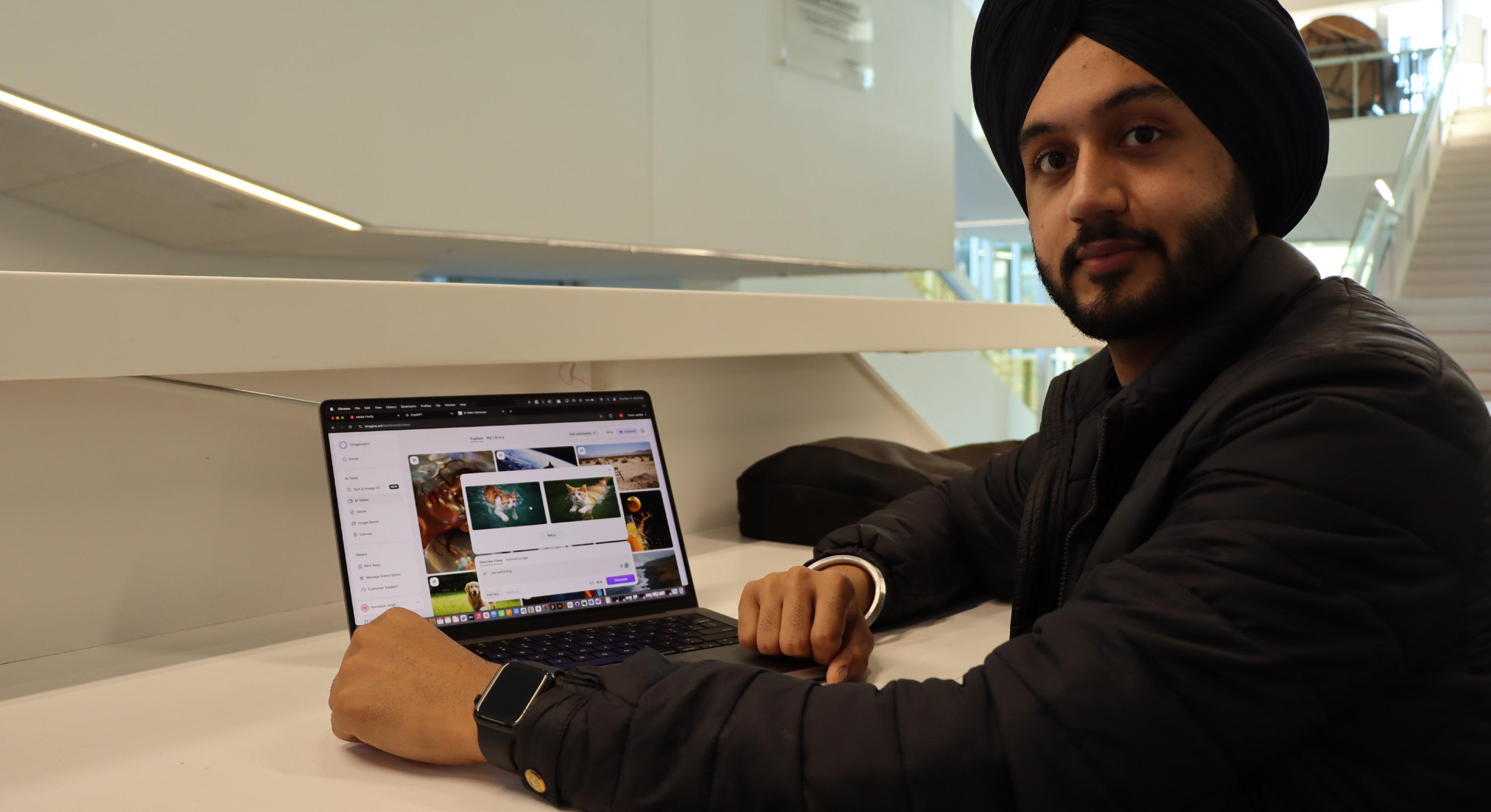
AI generation is reshaping schoolwork on both sides of the equation
By MARIANNE MIRAMBEL
Langara students say they are using AI to assist them in their schoolwork while avoiding academically dishonest uses of the new technology.
Amneesh Pal Singh, a third semester web and mobile app design and development student, said that he has used AI, but hadn’t implemented it until his second semester when he developed a project called WadroWiz.
“You can just upload the pictures of your clothes into your application and we suggest you the outfits automatically based on the AI,” Singh said.
He said his instructors have not banned the use of AI, but his instructors tell him and his classmates they
can use it whenever they find themselves “stuck in our code.”
AI became widespread in early 2023 with the introduction of ChatGPT. Its effects have greatly disrupted the traditional relationship between teacher and student.
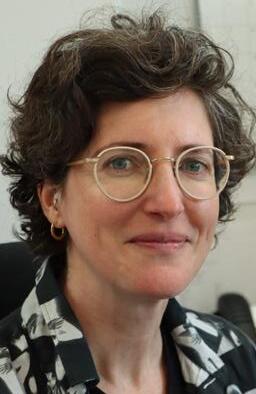
Alexandra Samur, a curriculum assistant at Langara’s teaching curriculum and development centre, said that AI took everybody by surprise and “all of a sudden, everybody was like ‘ChatGPT, ChatGPT.’”
“So everybody in our department
and at the college was sort of starting to think about these tools, this technology and how we were going to adapt,” Samur said.
Patricia Tating, a Langara data analytics student, said she’s used ChatGPT since it came out and now “heavily” depends on it.
“It just gives me ... an idea or some instructions on how to build the codes,” Tating said.
ify to students how much they can integrate AI in their work, since there’s no specific rules given by instructors or the college.
Tating said that it’s not “necessarily cheating” if people use it as a support or a “virtual assistant” instead of copying and pasting.
“You can't just stick your head in the sand and pretend it's not happening”
— LUKE MCKNIGHT, ASSISTIVE TECHNOLOGIST
She said that although instructors don’t specifically ban the use of AI tools, they also don’t promote the use of AI in assignments.
Singh said instructors should clar-
“ChatGPT is still prone to errors,” she said.
Singh said that there’s a difference between using AI for cheating, as opposed to using it as a tool for creating ideas.
He said that although it helps him to be more efficient, ChatGPT doesn’t always give accurate infor-
mation. “We still need to have that knowledge to be able to debug the codes.”
Singh said that AI is getting better at anticipating a user’s next move by using neural networks. “The accuracy of AI is definitely growing,” he said.
Luke McKnight, an assistive technologist with the educational technology department, helps Langara’s instructional staff in using different types of technology like Brightspace and Zoom.
McKnight said that he considers AI a “revolutionary technology,” even though it’s still in its early stages. “The possibilities seem really limitless, and there’s a lot of concerns and I think they’re totally valid,” he said.
“But on the flip side ... you can’t just stick your head in the sand and pretend it’s not happening.”
By LYDIA OCHIENG
Langara clubs say that room booking difficulties and a new 28-day advance notice of event policy are “strangling student life.”
Rae Parsons, president of the Langara Genders and Sexualities Alliance, said in a written statement they were shocked by the new policy and pointed out that it is impacting student life.
“Room bookings have been perfectly fine in the past, which is part of why this has been a shock,” they wrote.
Langara College student clubs were surprised this semester by a new requirement to give the college 28-days notice for events. Clubs also
experienced a one-week freeze in booking rooms earlier this term.
Akashdeep Singh, vice president of events and operations at the Langara Punjabi Association, said that recent room booking issues and the notice policy have reduced the frequency of their events.
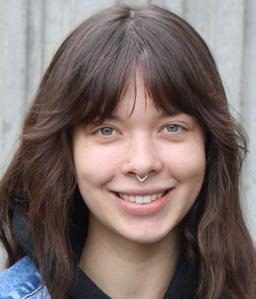
“We have a passion to create cultural awareness…. So we try to organize events, but like, planning it in 28 days of advance is not feasible,” said Singh. Singh said that his club is run by volunteers who need to focus on
academics and part-time jobs.
Nankling Dazel, president of the Nigerian Community at Douglas College, says that she feels wellsupported by the student union and her club is only subject to a threeday minimum notice requirement for booking rooms.
“Any email we send to them we just get like a straight response and all that stuff ... their responses have just been like, amazing,” said Dazel.
Ayla Maxfield, former president of the Langara Kinesiology Association, was not surprised to learn about the hold.
“I find things are changing very frequently and it’s hard to keep track of what’s policy, what we’re supposed to do as a club,” said Maxfield.
The college’s student engage -
ment office said the freeze in room bookings was due to a miscommunication between various college departments. It said in an email to the Voice that the requirement for 28-day notice for events has been a “longstanding guideline for event booking requests by the college events committee.”
It said in June it informed staff and faculty that any event under four weeks notice would be automatically refused, with some exceptions.
Clubs at other institutions face similar policies
Kwantlen Polytechnic University clubs face similar challenges such as a six-week notice requirement for booking most rooms and occasional interruptions to room booking services.
Vanshika Jain, clubs and outreach coordinator at the Kwantlen Student Association, said in a written statement that their organization emphasizes transparency and collaboration:
“We work hard to support clubs in their operations, from event planning to funding, while ensuring that they adhere to [student union] policies,” said Jain.
Mansukh Sidhu, the founder and former president of the Kwantlen Bhangra Club, said he had problems with booking rooms on campus even when he booked the room within the required three to four weeks.
“For the clubs, there was only one dedicated room where they could book it like do their meetings or do all the activities which their club is supposed to do,” said Sidhu.
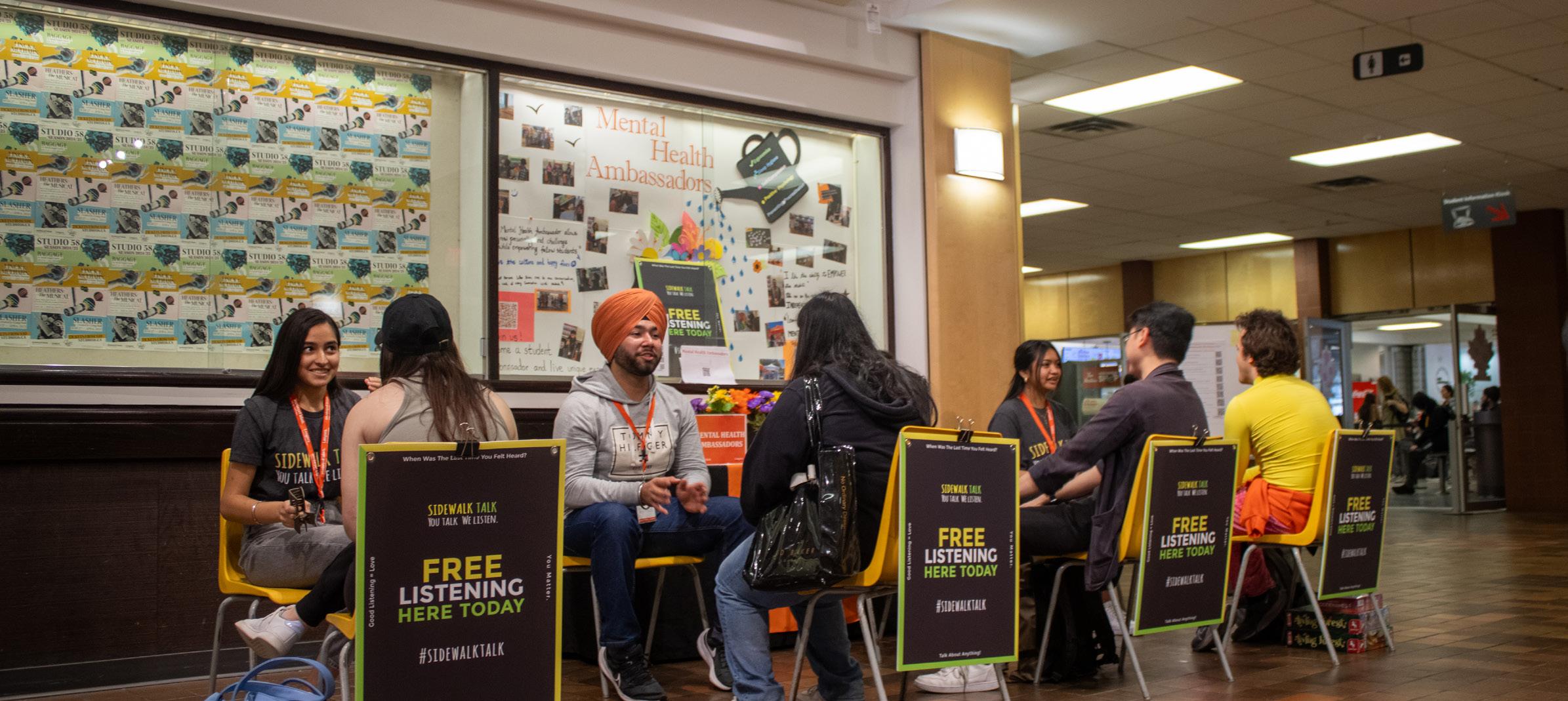
Feelings of loneliness are rising among Canadian youth, and Kousha Talebian and Zuki Majuqwana say they wanted to change things.
They created Common Ground, an event company with the goal to make in-person connections easier.
“There were a bunch of people across the city who were building community and running events in different ways, but it was really hard to find them, you kind of had to stumble across them on Instagram or someone had to refer you to them.” Majuqwana said.
Common Ground, founded in 2018, serves approximately 1,500 people each year. The organization hosts weekly community events in Vancouver, including workshops and social gatherings, aimed at fostering connection and support among participants and hosts.
Most events are offered at no cost, with some requiring a ticket and fee.
Recently, Common Ground held
a cooking workshop that cost participants $10 and a sauna night that cost $65.
Olivia Randall, a young nurse working in Vancouver, found out that graduating from university during COVID-19 made connecting with people more challenging.
“I didn’t have those opportunities to get out and organically meet people,” she said.
By creating a central destination for social opportunities, the two founders hope Common Ground will foster community among its users.
“We’re trying to use the magic of connecting people through technology but doing it on a super local scale,—
ZUKI MAJUQWANA, COMMON GROUND FOUNDER
Data from the Canadian Social Survey suggests that 15-to-24-year-olds are the loneliest age group in Canada. Between April and June of this year, 22.2 per cent reported feeling lonely often or always, while the average across all Canadians was only 14.7 per cent.
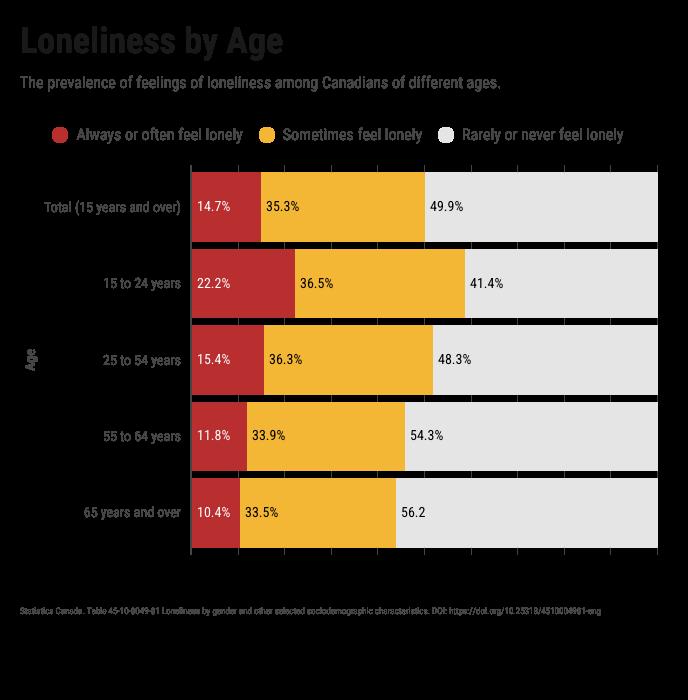
“We’re trying to use the magic of connecting people through technology but doing it on a super local scale, whether it’s a university campus or a city, to make it easier to connect and find your people,” Majuqwana said.
Talebian said that the power of community is important. “We don’t want to just sell out your event, for us the focus is to bring the right people to your event.”
Both founders acknowledged the
challenge of turning encounters at the events hosted on Common Ground into more meaningful relationships.
The company uses AI technology to track participants who attended events and recommend new events based on that information.
“For the attendees, we are keeping track of who sees who so that we make sure you will see the same person over and over again so that you kind of become their friends,” Talebian said.
Lenny Pallerstein, who attended Langara College, went to one of the meet-up events hosted on Common Ground’s platform. “This is mostly just me getting out of my comfort zone... in an intentional way,” he said.
Pallerstein believes that meetup events can foster meaningful connections.
“It felt a lot more comfortable than I thought it would,” said Pallerstein.
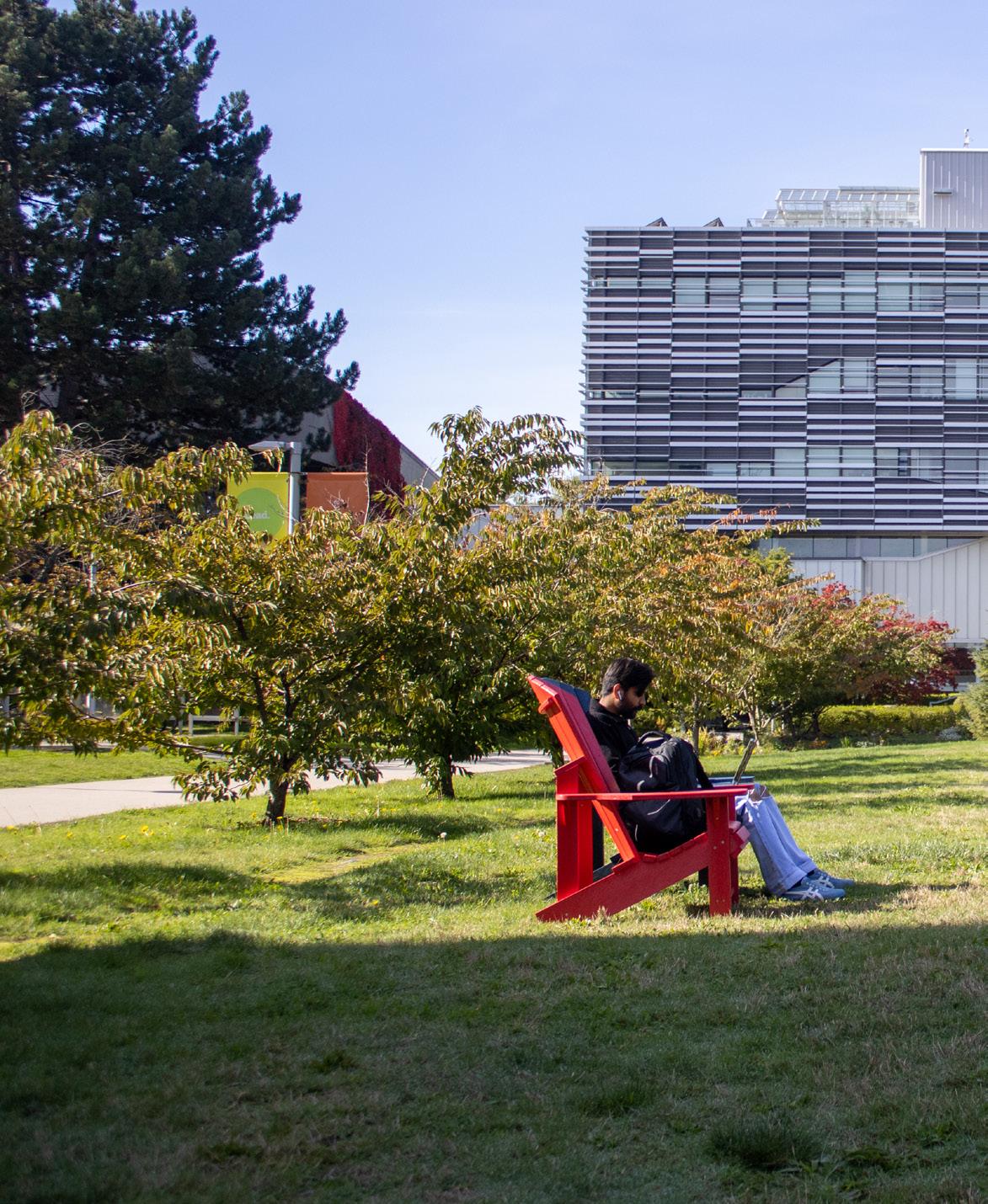

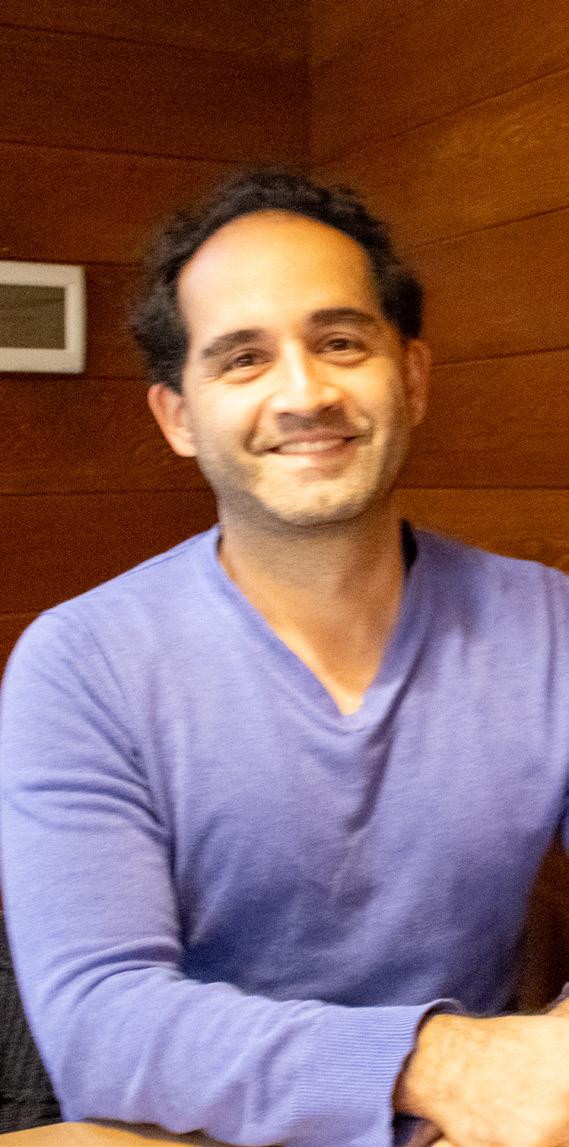
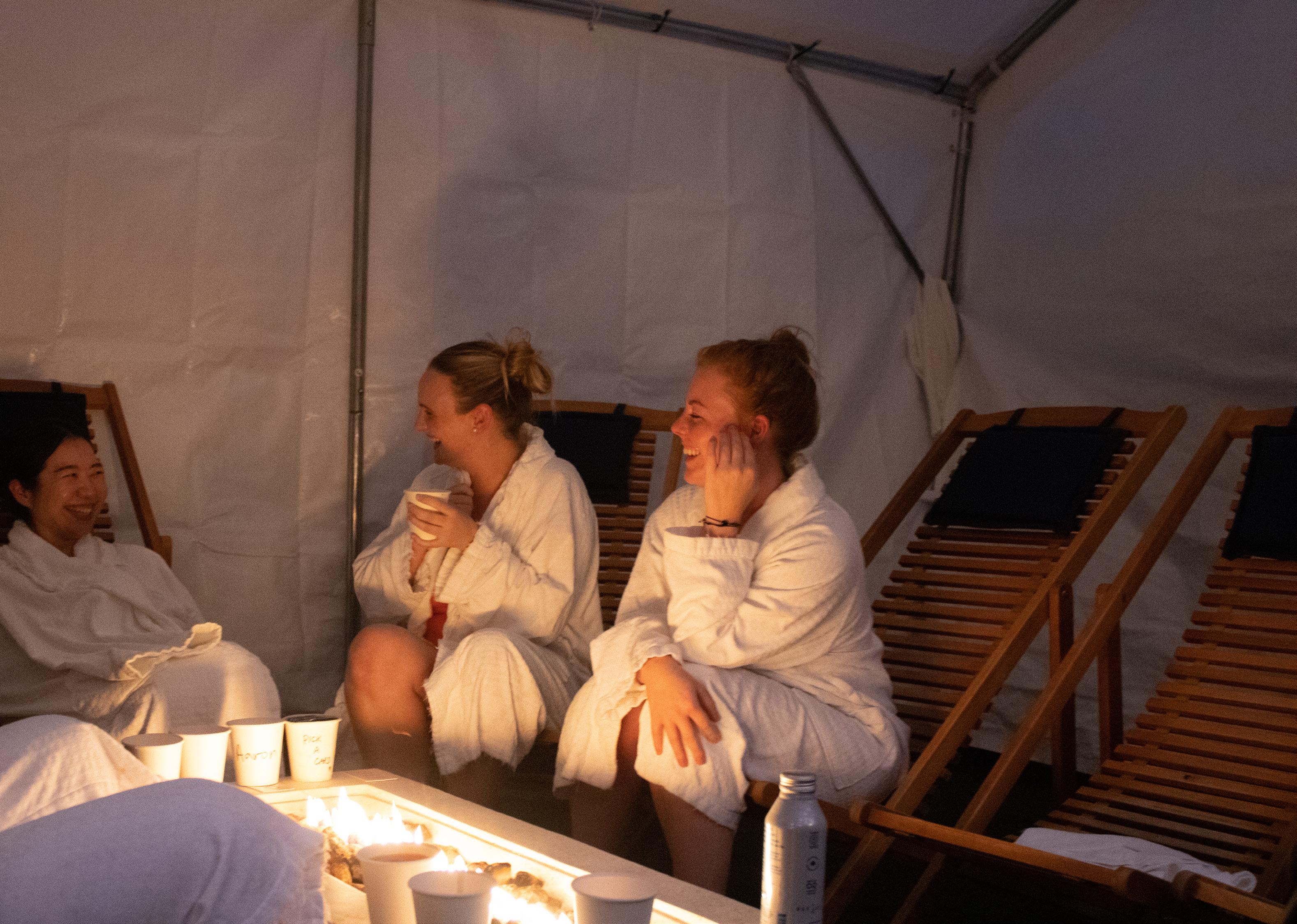
Rising loneliness among youth linked to declining in-person connections.
Adecrease in meaningful in-person connections may be contributing to rising loneliness among Canadian youth, though the issue is linked to complex factors.
Research shows that after 2012 loneliness and mental health distress have doubled in adolescents.
This shift coincides with the widespread adoption of smartphones and social media. Face-to-face interactions have declined, with more relationships mediated through screens.
that while social media allows users to connect with many people at once, those interactions often lack depth.
“These are the kind of connections that still leave us feeling hungry in a way, and people have referred to this as social snacking.
It’s like you get social connection, but it's like a snack. It's empty calories at the end of the day,” BarbeauMeunier said.
For young people, meaningful social connections are essential to building a sense of belonging and support and are linked to better mental well-being.
“These are the kind of connections that still leave us feeling hungry in a way, and people have referred to this as social snacking.”
— DR. CHARLES-ANTOINE BARBEAU-MEUNIER, PSYCHIATRY RESIDENT
Toronto psychiatry resident Dr. Charles-Antoine Barbeau-Meunier has spent his career committed to specializing in empathy. He said
Harman Singh, a mental health ambassador with student services at Langara College, said spending face-to-face time with friends was key to helping him navigate feelings of loneliness.
“Every single hour that you spend is like heaven with your friends, especially when you’re in a down
state,” Singh said. Through his work, Singh speaks to members of the Langara community who need someone to talk to, fostering in-person interaction.
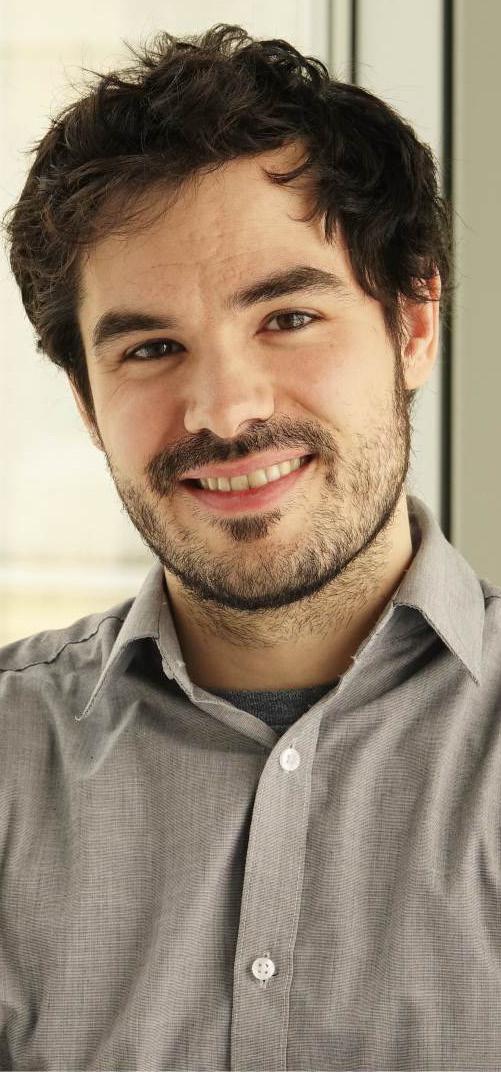
Dr. Charles-Antoine Barbeau-Meunier, psychiatry resident and empathy specialist. SUBMITTED PHOTO
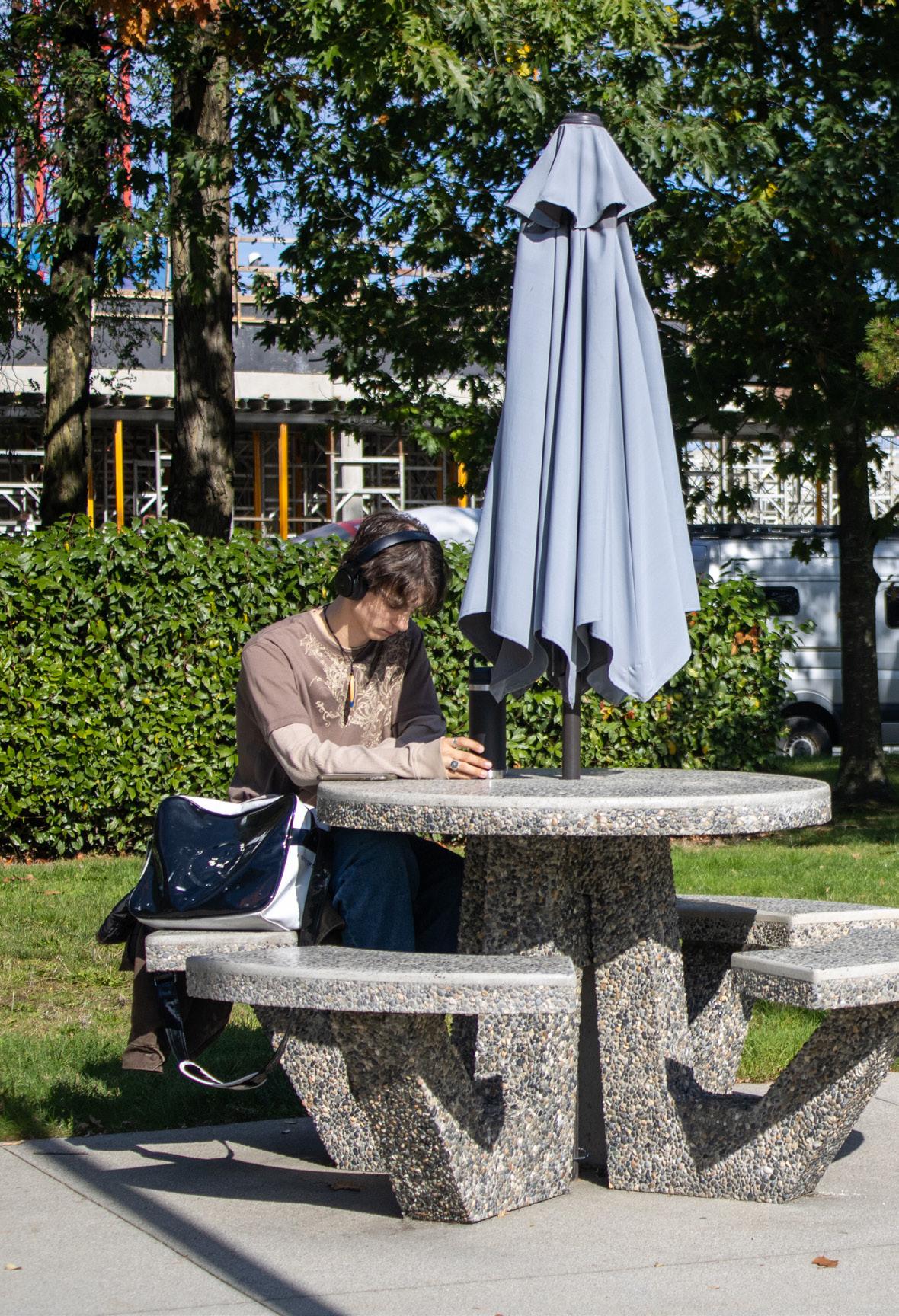



Imagine having to live with all your exes. That’s the story behind Baggage, Studio 58’s October production. It follows the heroine, Jill, as she navigates a new relationship with Ben while still carrying emotional baggage from her past relationships. The cast, primarily women dressed as men, portrays her exes as living reminders that inhabit her apartment. Student Carol Chu said females and non-binary actors in masculine roles were an integral part of the play’s humour.
Studio 58, based at Langara College, offers an intensive program incorporating acting and producing. Theatre student Lucy Jeffery was attracted to this program from a young age after watching their first show. “I still have the ticket stub,” said Jeffery, who felt that seeing that production changed their life. The plays are collaborative and students will experiment with different roles. Students will work alongside designers when developing their characters, but most students enjoy figuring out hair and make-up aspects themselves.
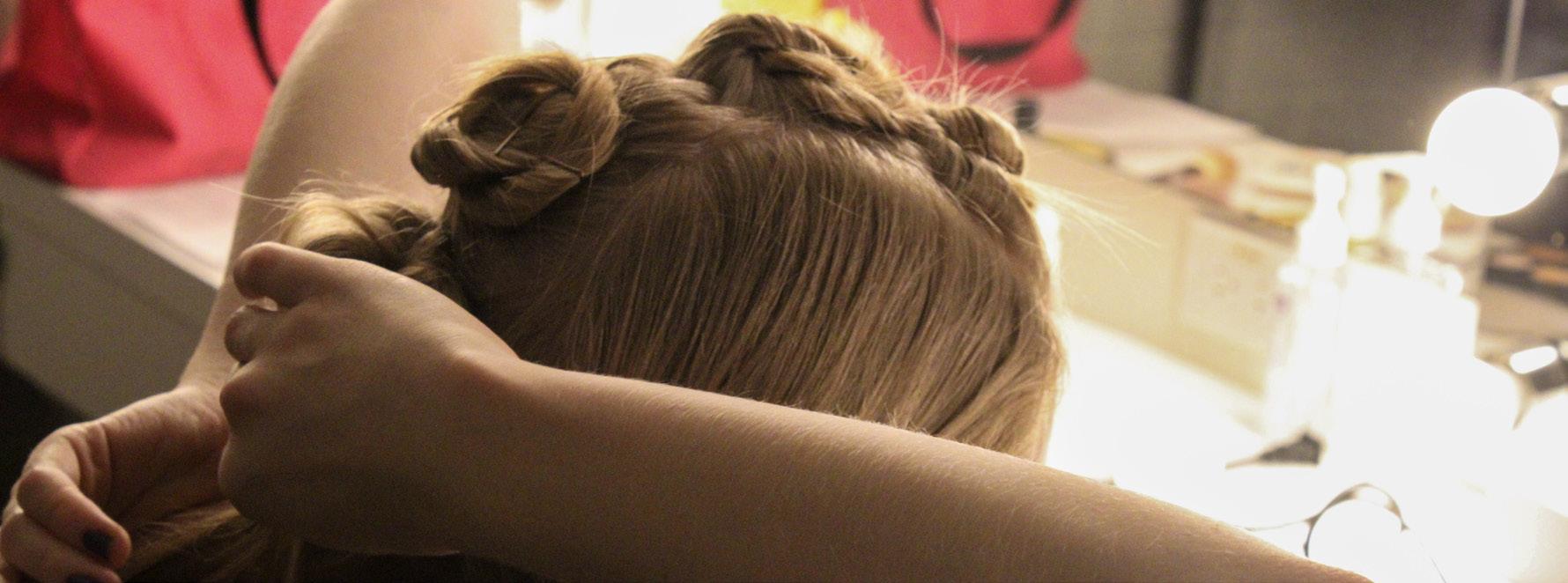
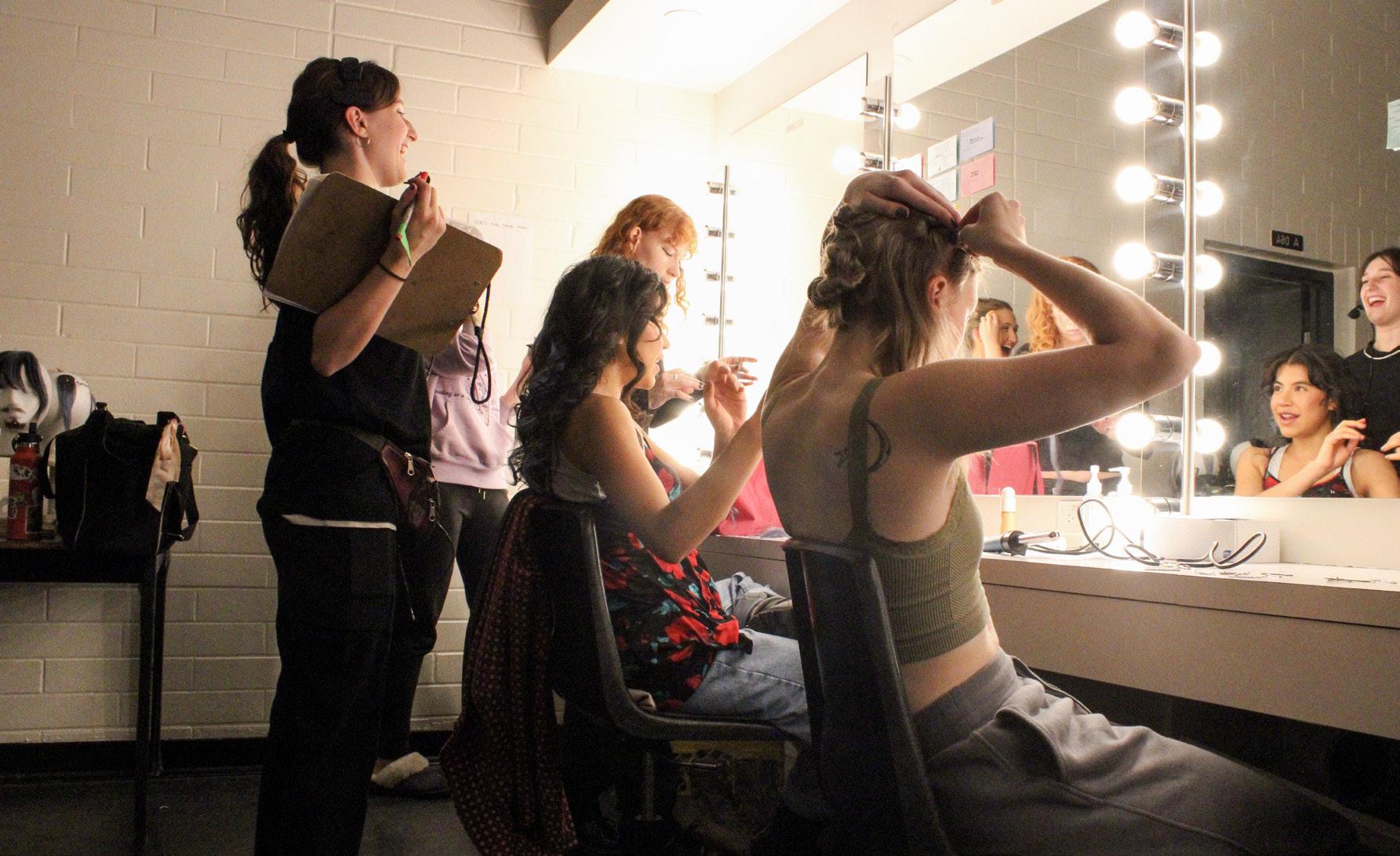
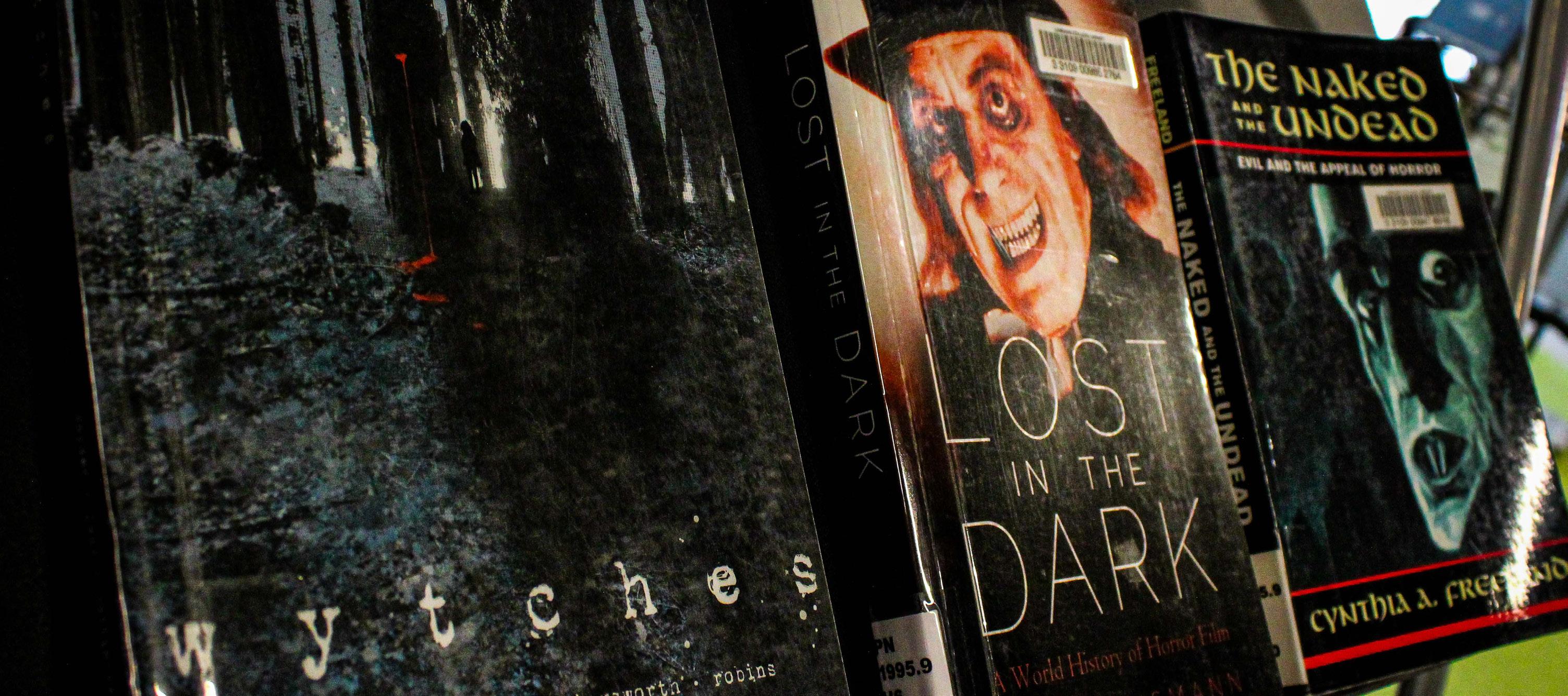
Organizers seek innovative strategies and student input to make the library a vibrant hub for connection and fun
By YEORGIOS PRONTZOS
Langara students are missing out on being scared – at least at the campus library.
The Langara library’s second annual Halloween Film Fest, designed to enhance student engagement, has struggled to draw a crowd. The event screens horror films every Thursday throughout October, aiming to encourage student participation and highlight the
lesser-known aspects of the library's collection.
“We're trying to bring students in to show that we can offer more than just a quiet place to study ... we offer a lot of things that students might need or might enjoy,” said Gary Kalmek, assistant at Langara library who initiated the Halloween Film Fest last year.
The screening on Oct. 17 saw no participants despite being held at the library’s main entrance, which featured bright lights and high foot
By BOB HOMER
Marpole residents are eager for the sewer upgrade project to be completed, however, there are conflicting opinions if the road work delays will outweigh the long-term benefits to the area.
“Drivers were actually running through the neighbourhood at pretty high speeds,” said Charles Gauthier, a long-time Marpole resident. Gauthier noted that many motorists are avoiding Oak Street due to the construction, rerouting through narrow residential streets ill-equipped to handle the surge in traffic.
Maria Auqui, a traffic control person, working in the area has witnessed motorists driving dangerously firsthand.
“Drivers are not being respectful, especially the left turn on Oak from 67,” Auqui said.
The project is part of the city’s
2023-26 Capital Plan, which aims to replace aging infrastructure with a higher-capacity separated sewer system. The construction covers Oak Street, West 70th Avenue, and Fremlin Street, a key area that links Vancouver to Richmond and Vancouver International Airport.
The project, which began in October 2023, is scheduled for completion by spring 2025.
Tracey Rinas, a realtor who works in the area, thinks development in the area might not be enough to ease the strain on traffic, it will only add to the congestion problem.
“What's being built really isn't going to meet the needs anyways,” said Rinas.
Claire Ryan, a Marpole resident, has witnessed frustrated motorists avoiding congestion by moving traffic cones to pass through.
“It was getting turned into an absolute mess,” said Ryan.
According to Vancouver City Hall, the city has received approximately
traffic. The films screened without sound, using only closed captions. The screening on Oct. 10 saw less than half a dozen students for the event. The library also features an extensive graphic novel selection and a vast streaming film collection accessible to students through its website. Additionally, the library provides a variety of textbooks for free, allowing students to save on costs.
As of August, late fees on most library items have also been elimi-
nated.
“The main purpose is to get people into the library and show that we can be a place for people to connect, especially peer-to-peer, and just kind of have fun and relax,” said Rebecca Slaven, event organizer and creative arts librarian at Langara.
Library employee Arshnoor Kaur said the library’s Instagram is a “great initiative” and advocated for “more marketing strategies” to promote events. Fellow library employee Laura Siauw suggested
collaboration with instructors to better educate students about available resources.
Students emphasized the importance of freebies and food items to attract audiences.
Charles Elmaalem, a Langara student who attended the Oct. 10 screening, said other schools host successful events like clothing drives or vintage pop-ups.
“A lot of people go to those … I go to those, and I don’t even go to that school,” he said.
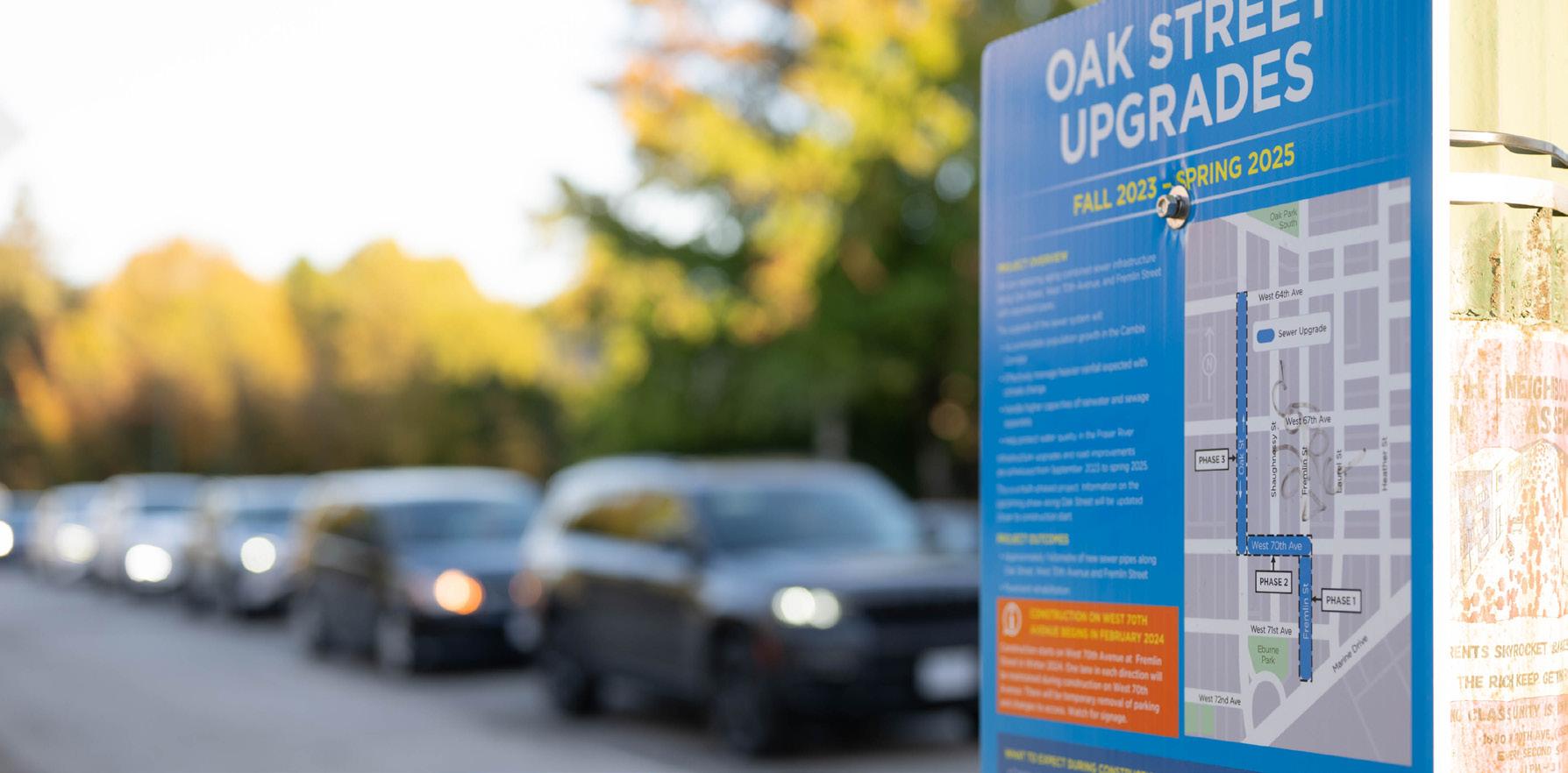
360 complaints related to the project, since September 2023.
Fernando Figueroa, a construction worker involved in the project, pointed to wider traffic increases across the Metro Vancouver region.
“Traffic has been increasing all over Metro Vancouver area because the population is growing,” Figueroa said. At a time when aging infrastructure throughout the city is a major concern, large-scale capital projects are becoming increasingly necessary to improve the situation. However, Rinas believes residents living in affected neighbourhoods are start-
ing to feel construction fatigue, which is adding to their frustration when driving through these areas.
“I feel like nobody's paying attention … oh, well, it's a minor inconvenience and it's only for a few days, so who cares. But it's like it's every single day, everywhere in the city,” Rinas added.
Residents aren’t the only ones feeling construction fatigue. Vikus Kumar, store manager of a Chevron gas station along Oak Street, says it has been difficult for businesses to stay open during the construction.
“Things have been slow,” Kumar said, but sees an end in sight and is
looking forward to the construction wrapping up so businesses can return to normal.
Despite the inconvenience, Gauthier sees the upgrades as necessary for the neighborhood's future growth. Ryan shares Gauthier’s optimism.
“Personally, it's an inconvenience to me. It's certainly annoying to a lot of the parents and everything like that. But like it's kind of necessary. So I think it's definitely worth it.” said Ryan.
“I think it's good to see … different kinds of multiple housing units being built … what we need to do is find a balance,” said Gauthier.
By RICK GOODE
Langara Falcons player Kadyn Brown said while his father first got him into basketball, his dad always stressed the importance of balancing school and sports.
“My dad grew up playing [basketball], so when I was a kid, he would always have it on the TV and I kind of got drawn to that. Then I started playing and he took me out to the parks and stuff,” Brown said.
The balance his parents raised him with has paid off.
Brown isn’t just a star athlete, he is also a star student. His academic achievements were recently recognized with a National Scholar Award from the Canadian Collegiate Athletic Association. Since 2004, the award has recognized academic excellence in student athletes across the country. To be eligible, students must achieve honours level grades while being a part of a registered sports team. This is the fifth consecutive year that Langara College students have won the award.
His father, Eugene Brown, is not surprised his son is doing so well. He said that thanks to his mother, their son was reading from a young age with lots of time spent in the library. They stressed that sports should only be for fun, and that getting an education was the most important thing.
“I always told him school comes first, you know. Once you have an education you can do anything you want,” said Brown.
Brown said that even at an early age the teachers at his son’s elementary school asked him to help instruct his fellow students during their annual sports day.

“He used to be an organizer, you know, so when the other kids were playing soccer or something, he was there as a coach,” he said. Those early leadership skills are evident now to his Langara team, so much so that men’s basketball team head coach Cassidy Kannemeyer said he has built some of the team’s
plays around Brown.
“He’s like the epitome of what a student athlete is,” said Kannemeyer.
As centre of the Langara Falcons, Brown plays a pivotal role on the team.
“He’s a big communicator, a big anchor for our team,” said team-
mate Oliver Munt. “The ability he has to lead and make big time plays is pretty incredible.”
Despite spending long hours in school and with his team, Brown still finds time to coach youth basketball as a way to give back to the community.
“I think it’s a good way to get to know the kids that are coming up from the area you came from,” he said. “I enjoy it in the moment.” Brown was one of two Langara student to win the National Scholar Award this year.
The other winner was Maddie Murray from the women’s basketball team. Murray declined an interview.
By TUAN TRAN
Makerspace offers Langara solutions for hard-to-find replacement parts as well as student and faculty projects: it will make them.
“The Makerspace is a resource for all of Langara,” said Philip Robbins, coordinator of the department. “We have more capability in this room than the early factories in the Industrial Revolution had.”
Makerspace is a creative work area at Langara that uses technology like laser cutters, plasma cutters, 3D printers and sewing machines for the creation of different products. The department also promotes faculty development by encouraging the integration of new technologies into their teaching curriculum.
Older buildings at Langara
require regular maintenance, but certain necessary parts are no longer accessible.
Don Gillard, Makerspace’s technician, said the process of replacing a part starts with a person coming in with a problem and shifts to figuring out how to produce an item.
Production involves sketching the design and recording the dimensions, followed by creating it in a 3D program. If the item is intended for 3D printing, it is output through one of the available 3D printers.
“Most of the stuff I do here, you can’t get parts for it,” Gillard said. He said that parts like the end caps for the doors and windows for the aging Langara buildings are no longer available on the market, but they can still be 3D printed at Makerspace.
Instructors have also used the Makerspace to create good quality replacement parts for instruments
they use around their departments at a fraction of the cost.
Andrew Egan, a geography instructor in the environmental studies program, is using Makerspace to produce a 3D-printed topographical map of Canada that will display geographic information.
by 2026.
“[The map] is a whiteboard,” Egan said. “We can demonstrate the geological formations… population densities for all of Canada [or] differences in the agriculture or soil types.”
“We have more capability in this room than the early
factories in the Industrial Revolution had.”
Egan’s longterm project involves collaborating with his current and upcoming students to create individual 3D-printed square tiles that — when finalized — will combine to form a map of Canada. Egan hopes to have his project finished
— PHILIP ROBBINS, MAKERSPACE COORDINATOR
Egan involved his students in the project by allowing them to select tiles, learn to use the 3D printers, and print their chosen pieces.
“Part of what we want to do is we want to illustrate how we can use 3D printers in the field of geography,” Egan said. “This way all students are learning that 3D
printing is not just for making little figurines or what have you, but you actually can have a slightly artistic and different, more practical form.”
Former student Wai Yip Suen, an environmental studies major, expressed how Egan’s project has sparked enthusiasm within him for 3D printing.
“I saw 3D printing on YouTube before, but never touched or even printed something for myself,” he said.
Trying a 3D printer for the first time, Suen said how incredible it is to simply upload a 3D file and have it automatically print an object and using that object instead of just viewing it on a computer screen.
Egan said, “the idea is to use this project to introduce them to the Makerspace and give them a sense of comfort in using that technology and that equipment and the tools that exist there.”